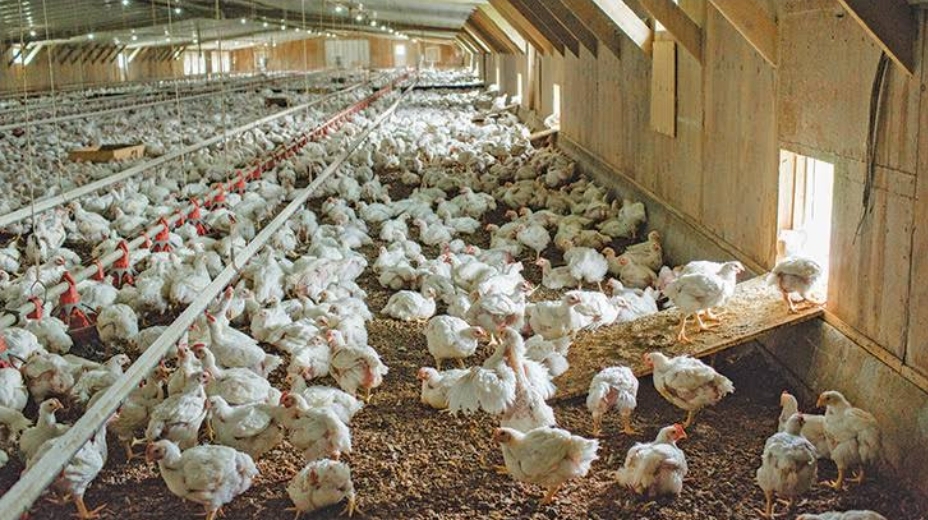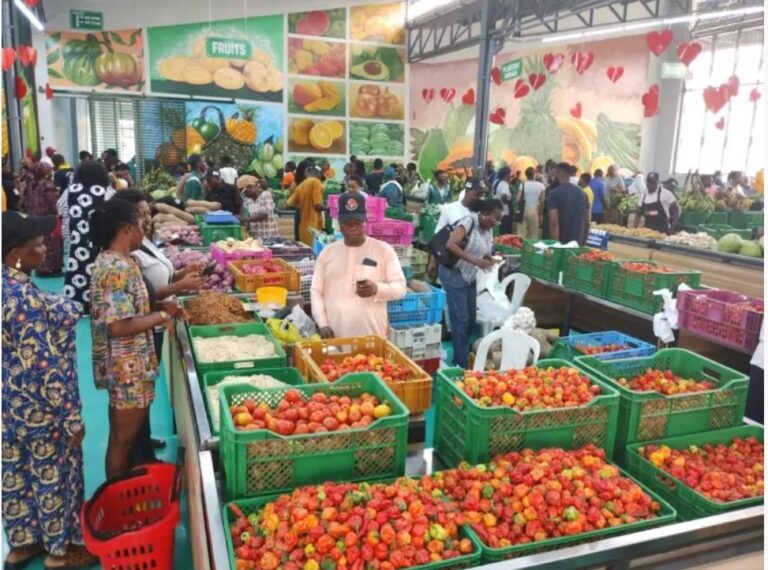How To Start and Make Money In Poultry Farming In Nigeria
Will you like to start poultry farming in Nigeria? In this article I’m going to share with you ways by which you can start poultry farming and make good profit.
Not just that, I’m going to share with you the best practice and things you need to do or know before you think of going into poultry farming in Nigeria.
We know that everything is costly in Nigeria these days even the cost of feeling our poultry birds is not something to write home about, but I have a special just for you.
Imagine chicks that you buy for 4000 and you sold it all for a whopping some of 80 to 90k, that’s a huge profit. The good news is that this type of business is very good to start as a side hustle.
Sacking your boss with the help of this type of job is very easy and anybody can do it, including you.
FACT; in 2015 when I finished my NYSC I gained a job to work in a big poultry farm in Lagos state, I know this job is what many graduate won’t like to do but I focus on it since I have no option as a fresh graduate.
After working with them for 6 months I started my own small poultry farming beside my house. I only feed them morning and evening.
I will give them, their medicine and enough food before I leave When I’m back I will repeat it again. Though, I leave in a big compound with fence and I have a secure place where I keep my birds.
After doing that and gaining enough experience for about 2 years I resigned from my working place and then, move back to Enugu state where I buy a plot of land for about 800k and fence it.
Note: these money that I’m spending are what I saved from my salary and my profits from my side hustle.
I bought different kinds of poultry birds including: ducks, chicks, turkeys. Both broiler and layers and started feeding them, back then, I rented a small house beside the farm and I focus on the business as my main hustle.
After 6 months, I was able to earn my capital back. And today that same business have over 21 workers which I do pay monthly.
How to Start Poultry Farming as a Beginner in Nigeria
Starting a poultry farm is not difficult if you follow these steps. With hard work and proper management, you can build a successful poultry business in Nigeria, or anywhere else. Remember, na small-small e dey start, but with time, your farm go grow big.
As a beginner this can be a rewarding business if you plan well. Whether you want to raise chickens for eggs or meat, the steps below will guide you on how to get started, especially if you’re in places like Enugu, Ebonyi, or Lagos.
- Choose Your Poultry Type:
The first step is to decide what type of poultry you want to farm. Most people start with chickens because they are easy to manage.
You can choose between layers (for eggs) or broilers (for meat). Layers go lay eggs, while broilers go grow quick for meat.
So the choice is your, in the type of birds that will give you more money.
- Secure a Good Location:
You need a good location to raise your birds. The place should be well-ventilated and protected from harsh weather.
For those in Enugu, Ebonyi, or Lagos, ensure the area is safe from predators and thieves. Na for your hand the birds dey, so protect them well.
Apart from have a cool place, secure location is not what you can joke with.
- Build or Buy a Poultry House:
The poultry house is where your birds will live. It should be spacious, with enough room for the birds to move around.
Make sure you build or buy a house that is easy to clean. Hygiene is very important in poultry farming. No let dirt take over, otherwise, disease go enter your farm.
- Buy Quality Chicks:
The quality of chicks you buy will determine how well your poultry farm does. Make sure you buy from a trusted supplier.
For those in places like Ebonyi, or Edo state, you can easily find reliable suppliers. If your chicks no dey healthy, your farm no go succeed.
- Feed and Water the Birds Properly:
Your birds need balanced feed and clean water to grow well. The type of feed depends on the age of the birds. Make sure they always have enough feed and water. Na food and water go make them grow strong.
- Maintain Good Hygiene:
Keep the poultry house clean to prevent diseases. Regularly disinfect the area and ensure the birds are not overcrowded. If one bird falls sick, separate it from the others to prevent the disease from spreading.
- Market Your Products:
Once your birds are ready, you need to sell them. For eggs, you can target local markets or supply to stores. For meat, you can sell directly to consumers or in bulk to restaurants.
In cities like Lagos, the demand for poultry products is high, so there’s good business waiting for you.
- Keep Records:
It’s important to keep records of your expenses, sales, and the health of your birds. This will help you know if your business is making profit or not. If you don’t keep records, you fit lose track of your progress.
Common Management Practices in Poultry Farming in Nigeria
Poultry farming, which includes the rearing of chickens and turkeys, is one of the most common and profitable agricultural ventures in Nigeria.
Whether it’s for egg production, meat, or breeding purposes, proper management practices are crucial to ensure high productivity and profitability.
READ ALSO: 5 Business that can you 5 Million monthly
Below are some common management practices in poultry farming in Nigeria:
1. Housing Management;
a.) Chickens: The type of housing used for chickens can significantly impact their health and productivity. In Nigeria, farmers often use the deep litter system or battery cages.
The deep litter system involves spreading wood shavings or sawdust on the floor of a well-ventilated poultry house. Battery cages, on the other hand, are metal cages where birds are kept in individual or group compartments.
Proper ventilation, temperature control, and lighting are essential to create a comfortable environment for the chickens.
b.) Turkeys: Turkeys require more space than chickens, so their housing should be spacious and well-ventilated. The deep litter system is also commonly used for turkeys.
However, the litter material should be kept dry and regularly changed to prevent disease.
Turkeys are more sensitive to heat, so providing adequate shade and cooling, especially during the hot season, is important.
2. Feeding Management
a.) Chickens: Feeding accounts for a large portion of the cost in poultry farming. For chickens, a balanced diet that includes grains like maize, soybean meal, fishmeal, and essential vitamins and minerals is necessary.
Layers (egg-laying chickens) require feed high in calcium to support eggshell formation, while broilers (meat chickens) need feed rich in protein for rapid growth.
Access to clean, fresh water is essential for maintaining the health and productivity of the chickens.
b.) Turkeys: Turkeys have a different nutritional requirement compared to chickens. They need a diet that is higher in protein, especially during their early growth stages.
Commercial turkey feed is often used, supplemented with grains and greens. Providing enough clean water is also crucial for turkeys, as they tend to consume more water than chickens.
3. Health Management
a.) Chickens: Disease management is a critical aspect of poultry farming. Vaccination against common poultry diseases such as Newcastle disease, Gumboro, and Marek’s disease is standard practice.
Farmers also implement biosecurity measures like controlling access to the poultry house, disinfecting equipment, and isolating sick birds to prevent the spread of diseases.
Regular health check-ups by a veterinarian can help in early detection and treatment of health issues.
b.) Turkeys: Turkeys are prone to diseases like fowl cholera and blackhead disease, so vaccination and regular health monitoring are necessary.
Biosecurity measures are equally important in turkey farming. Farmers should ensure that their turkeys are not exposed to other animals that could carry diseases, and regular cleaning and disinfection of the turkey house are essential to maintaining a healthy flock.
4. Breeding Management
Chickens: in Nigeria, many poultry farmers buy day-old chicks from reputable hatcheries that specialize in breeding high-quality layers or broilers.
Selective breeding practices are used to enhance desirable traits such as fast growth, high egg production, and disease resistance.
Artificial insemination is not common in small-scale chicken farming but is sometimes used in larger commercial operations.
b.) Turkeys: Breeding turkeys in Nigeria often involves selecting healthy, strong birds with good weight gain and egg-laying capacity.
Some farmers use artificial insemination, especially for large breeds that have difficulty mating naturally.
Day-old poults (young turkeys) are usually purchased from hatcheries, and farmers must ensure they are from disease-free stock.
5. Waste Management
a.) Chickens: Proper waste management is vital to prevent disease outbreaks and maintain a clean environment. The litter in deep litter systems should be regularly changed, and droppings from battery cages must be removed frequently.
Poultry waste can be composted and used as organic fertilizer in crop farming, which helps in waste recycling and reduces the environmental impact.
b.) Turkeys: Similar to chickens, turkey farms produce a significant amount of waste, which must be managed effectively.
Regular cleaning of the turkey house and proper disposal of droppings help prevent diseases and maintain a healthy environment. Turkey waste can also be composted and used as manure.
6. Biosecurity Measures
a.) Chickens: Biosecurity involves practices that reduce the risk of disease introduction and spread on the farm. Farmers should limit access to the poultry house, regularly disinfect footwear and equipment, and avoid contact between the chickens and wild birds or rodents.
Quarantine of new birds before introducing them to the flock is also a standard biosecurity practice.
b.) Turkeys: Biosecurity is equally important in turkey farming. Turkeys should be kept away from other animals and wild birds to prevent disease transmission.
Farmers should disinfect equipment and restrict visitor access to the turkey house. Any new turkeys should be quarantined before being added to the flock.
7. Record Keeping
a.) Chickens: Record keeping is essential for tracking the performance of the flock and making informed management decisions.
Farmers should maintain records of feed consumption, egg production, growth rates, mortality, and health treatments. These records help identify trends and areas for improvement, ultimately leading to better productivity and profitability.
b.) Turkeys: Similar to chickens, keeping accurate records in turkey farming is crucial. Farmers should track feed intake, weight gain, egg production (if rearing breeding turkeys), and any health interventions.
These records help in managing the flock more effectively and improving overall farm performance.
Conclusion
I have been able to share with you simple ways to start poultry farming and how you can manage it to be able to make enough profits.
Poultry farming, whether for chickens or turkeys, requires diligent management to ensure success. From housing and feeding to health and waste management, each aspect plays a critical role in the productivity and profitability of the farm.
I know my guide here will surely help you, and I wish you good luck.







